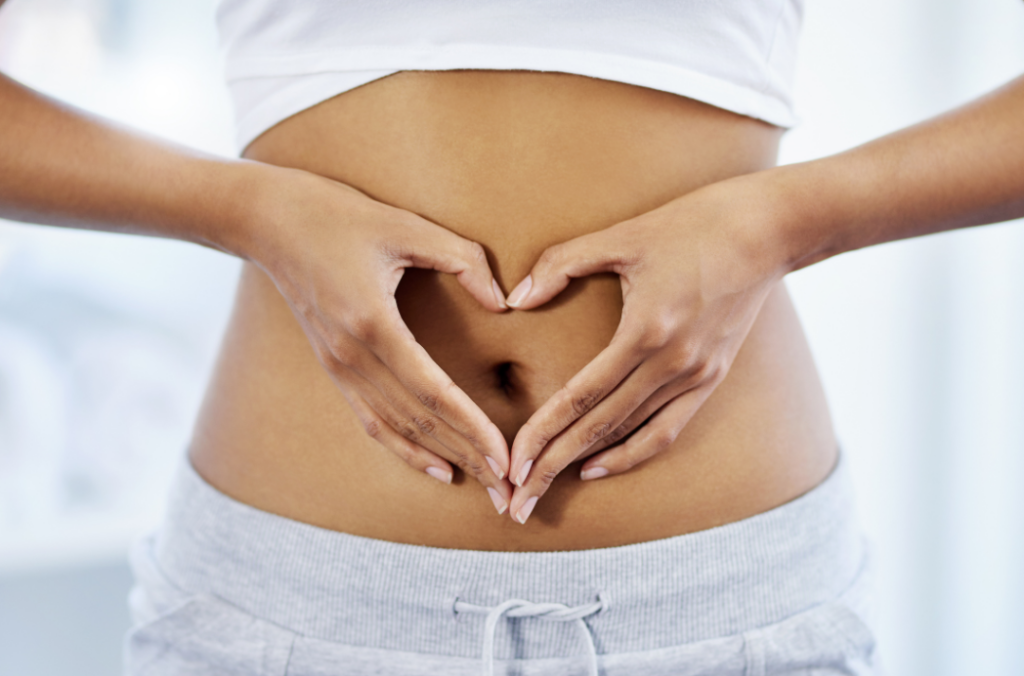Have you ever wondered why the term “gut feeling” has been so widely used for years? Maybe before science gave us the data, our ancestors were wise enough to correlate the power of the gut with our overall health. Indeed, as the ancient Greek physician Hippocrates once said: “All disease begins in the gut” and the gut microbiome has been shown to be the root of many health imbalances and diseases.
When you find you’re getting any kind of insight from your gut, whether it’s your intuitive or your physical gut, make sure you pay attention. Because what it has to share can truly be life changing.
WHAT IS THE GUT? The gut refers to the place where our food is digested, metabolized, and absorbed to be delivered into cells. The total surface area of our gut is roughly the size of a badminton court or the size of a small studio apartment.
THE GUT MICROBIOME refers to the live bacteria humans have in the gut, but it also includes fungi and viruses. It’s estimated that the gut contains 35,000 different strains of bacteria, the majority of which are found in the large intestine and colon. You have about 10 trillion human cells and over 100 trillion microorganisms within you. Hence, you are more of a walking, talking ecosystem that houses those microbes. These tiny organisms have a major effect on overall health and have been implicated in a variety of conditions, including everything from gastrointestinal disorders to cardiovascular disease and asthma. Our gut health may also regulate our mood (through serotonin production), immune response, and predisposition to weight gain. The integrity of the gut lining can become compromised if it’s constantly being exposed to irritants through the diet or environment, and lead to chronic low-level inflammation.
WHAT AFFECTS THE GUT?
- Mode of delivery: Babies born via C-section are exposed to different strains of bacteria as compared to babies born vaginally.
- Diet during infancy: Breastfed infants are exposed to more beneficial bacteria from their mothers than formula-fed babies. Interestingly, breastmilk microbiota can vary widely, depending on the mother’s diet, antibiotic use, BMI and overall health.
- Diet during adulthood: Diet has a great impact on the types of bacteria that thrive. Even a brief dietary change has been shown to change the gut microbiome. Organisms that support the breakdown of foods you normally consume flourish, while others die.
- Antibiotics: Antibiotics work by killing bacteria and are effective when you need to get rid of bad bacteria, but they also destroy the good bacteria. Even one dose of a commonly prescribed antibiotic can wipe out microbial diversity for up to one month. For sure, antibiotics are necessary at times but remember to give your gut a little extra love after such treatment.
- Age: It takes up to three years for toddlers to colonize their gut microbiome similarly to that of an adult’s. Microbial diversity may also decrease after age 75.
- Genetics: Some aspects of the microbiome may be inherited even though much of our gut health has to do with environmental factors.
- Stress: Even brief periods of stress have been shown to change the gut microbiome.
5 WAYS TO SUPPORT YOUR GUT:
1) Choose gut-friendly foods:
– Incorporate dietary diversity: Vary the types and colors of fruits and vegetables you eat each week. Polyphenols in fruits and vegetables are also anti-inflammatory.
– Make dietary fiber key: Fiber-rich foods such as broccoli, brussels sprouts, beans/legumes, and root vegetables can be fermented into beneficial compounds by our gut microbes.
– Enjoy omega-3 and monounsaturated fats: Wild caught salmon, sardines, walnuts, avocados, and olive oil all help support a healthy balance in the gut.
– Crowd out less gut-friendly foods: Limit added sugars, sugar substitutes, preservative agents, highly processed foods, and food additives. These commonly consumed ingredients can adversely affect the gut microbiome, especially if consumed often.
– Reduce alcohol consumption: Alcohol overuse may result in dysbiosis, an imbalance of beneficial and potentially harmful bacteria in the gut microbiome. Chronic alcohol use can also cause the gut lining to become inflamed and porous. Gut friendly alternatives to alcohol include seltzer with fresh lime, kombucha or sparkling water with frozen berries.
– Add fermented foods: Nutrients and microorganisms in unpasteurized sauerkraut, yogurt with live active cultures, kimchi, tempeh and kombucha can interact with the gut microbiome to provide benefits.
2) Minimize Stress: Research continues to highlight the negative effects of prolonged stress on our health, including the digestive system. There is a two-way connection between physical, emotional, and environmental stress and the gut microbiome. Chronic stress can lead to an imbalance of beneficial and potentially harmful bacteria in the gut microbiome (dysbiosis) and intestinal hyperpermeability (leaky gut), allowing bacteria to flow into the bloodstream and causing inflammation and health issues. In turn, an unhealthy, unbalanced gut microbiome can trigger stress and affect mood. Stress reduction techniques, like mindfulness, breathing, and movement can help promote harmony with the central (brain) nervous system and the enteric (gut) nervous system.
3) Get Moving: Exercise enhances the diversity of gut microbiome. It also promotes the growth of bacteria that protect against gastrointestinal diseases and colon cancer. Low- to moderate-intensity exercise can also influence transit time. Moving the body regularly can positively impact mood, which may lead to food choices that support the gut microbiome. An easy way to care for the gut microbiome is to move your body in ways that feel good for you.
4) Be mindful of medications: Some medications, such as antibiotics and NSAIDs, interact with the GI tract and gut microbiota. Taking antibiotics can significantly alter the number and type of bacteria in the microbiome. These changes can lead to antibiotic-induced diarrhea, nausea, and vomiting. If taking an antibiotic is necessary, consider talking to your healthcare provider about supplementing with a probiotic to replenish the gut microbiome and support your microbiome with fermented foods.
5) Consider Probiotics: The globally accepted, scientific definition of probiotics is “Live microorganisms that, when administered in adequate amounts, confer a health benefit on the host.” Make sure to look at product labels and manufacturer websites for clinical data and third-party testing that ensures stability through shelf life. It’s also important to consider strain specificity when deciding which probiotics may best support your individual needs.
————————————————————————————————————————-
THE GUT-BRAIN CONNECTION
Have you ever felt knots in your stomach before an important meeting or a stressful event? Then you’re familiar with the gut-brain axis at work. The gut and the brain are linked by bidirectional pathways that influence both mental and physical health.
The Gut-Brain Axis is a communication network between the central nervous system (CNS) and the enteric nervous system (ENS). These two are linked by the vagus nerve, the longest and most important nerve in the human body.
When the gut is in a state of inflammation or dysbiosis (imbalanced microbiome), mental and emotional health can be affected. Because important neurotransmitters such as serotonin and dopamine are produced by beneficial gut bacteria, disruptions to this environment may affect signaling to the brain along the vagus nerve. This has been linked to mental health conditions, including depression and anxiety.
When the brain activates the fight-or-flight response because there is a danger or stressor, the vagus nerve can normally counterbalance the “fight or flight” response with the “rest and digest” response. However, chronic stress impacts the normal functioning of the vagus nerve, causing a slowing or stalling of digestion, leading to digestive issues and unfavorable changes in the gut microbiome.
————————————————————————————————————————-
Isn’t it so empowering to know that the fate of our physical and emotional wellbeing is all up to the choices we make daily?
Now that you have a better understanding about the role of the gut health in your overall wellbeing, what is one thing that you can do today to invest in your health? Please drop a comment, I would love to know.


 Sign up for my monthly newsletter to receive wellness tips, upcoming events, and healthy recipes, and get a free 5-minute express de-stress meditation audio recording.
Sign up for my monthly newsletter to receive wellness tips, upcoming events, and healthy recipes, and get a free 5-minute express de-stress meditation audio recording.
Amazing information, we hear bits and pieces of info about gut health and how our diets should be like. However, it usually is not simply explained why! I loved above blog as its all summarised and explained simply and still very informative. This will help me a lot, thanks Melis. Looking forward to reading your next blog
Very informative and useful blog, thanks for sharing. We all heard / read about importance of gut health but having such a good summary helped me understand why its important and how to have a healthy gut. Cant wait to read the next blog.